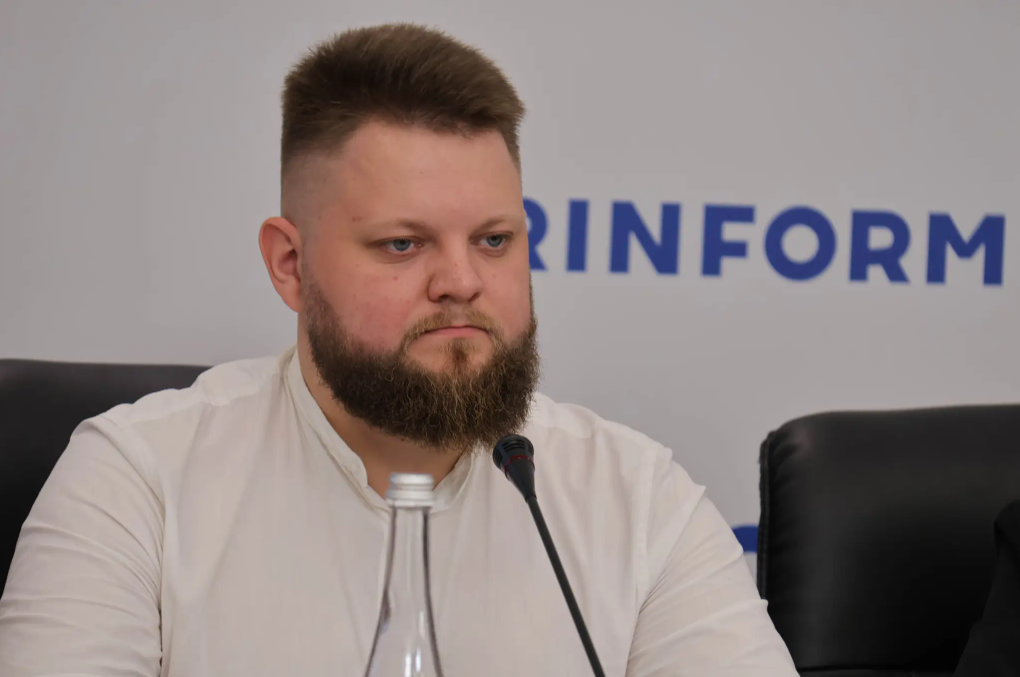
Analysis by Havrylov Vladyslav for The Geopost
Since Russia’s full-scale invasion of Ukraine in February 2022 and to this day, in the temporarily occupied territories of Zaporizhzhia, Kherson, and Donetsk regions, as well as in occupied Crimea, the Russian occupation authorities have launched systematic persecution of Christian communities that did not submit to the Russian Orthodox Church (ROC). The occupiers’ policy included administrative bans on the activities of many denominations, the forced closure of churches, and the seizure of church property. Already in December 2022, the Ukrainian Greek Catholic Church was banned in the occupied territory of the Zaporizhzhia region, and Protestant and other Christian communities were subjected to repression.
It should be noted that the issue of religion is of great significance for Ukrainian society. In the context of the war, the role of the church in Ukrainian society has grown significantly, which has become the basis for noticeable support for the OCU among citizens. According to the Razumkov Center, in 2022, the proportion of believers increased to 74% due to the war, but by 2024 it had decreased to 68%. Concurrently, 22% of respondents indicated that following the onset of the full-scale invasion, they had become more religious. The highest level of religiosity was recorded in the western region (85%), while in the eastern region it was only 55%.
So, what methods are the Russian occupation authorities using in the occupied territories? The Russian authorities, in cooperation with local officials who have collaborated with the Russian Federation, use methods of intimidation, detention, arrest, interrogation, and torture against religious ministers and believers, trying to force them to submit to the ideology of the “Russian world,” which is actively promoted through the Russian Orthodox Church. Russian ideologists and senior church hierarchs of the Russian Orthodox Church actively promote this ideology, pushing these ideas through the “Russian doctrine” and the concept of the “Russian world.” This ideology aims to essentially absorb all countries of the post-Soviet space, with a particular focus on the territories of modern Ukraine and Belarus, and further on the Baltic states and Kazakhstan, under the monopoly leadership of the Russian Federation, arguing this with the commonality of the Russian language and the supposedly single cultural space.
For example, the current Patriarch of Moscow and All Russia, Kirill, while still Metropolitan of Smolensk and Kaliningrad, stated the concept of the “Russian world” in the television program “The Word of the Shepherd” as follows: “If we consider civilization, then Russia is part of a civilization that is broader than the Russian Federation. We call this civilization the ‘Russian world’. The ‘Russian world’ is not limited to the Russian Federation, nor is it only the world of the Russian Empire. The ‘Russian world’ has its origins in the baptismal font of Kyiv. It is a unique civilization to which people who today identify themselves as Russians, Ukrainians, and Belarusians belong. This space may even include people who are not part of the Slavic world but who have adopted the cultural and spiritual components of this world as their own.”
Most religious organizations that resist the establishment of the Russian Orthodox Church’s monopoly and this ideology face severe discrimination and persecution. The persecution is not only religious but also political in nature, as it is aimed at destroying Ukrainian identity, displacing independent church structures, and creating a monopoly of the ROC in the religious space of the occupied regions. This indicates the use of religion as a tool of repression and control to achieve the strategic goals of the occupiers and further assimilation of the population.
The Russian occupation authorities justified this with far-fetched reasons such as “espionage,” “storage of weapons by religious organizations,” and “extremism,” which, of course, do not correspond to reality and bring to mind parallels with the communist period of struggle against religion. For example, these parallels are very clearly seen in the case of the ban on the Ukrainian Greek Catholic Church in the temporarily occupied territories of Ukraine. Several documents — Soviet and modern — from the Russian occupation administration demonstrate this.
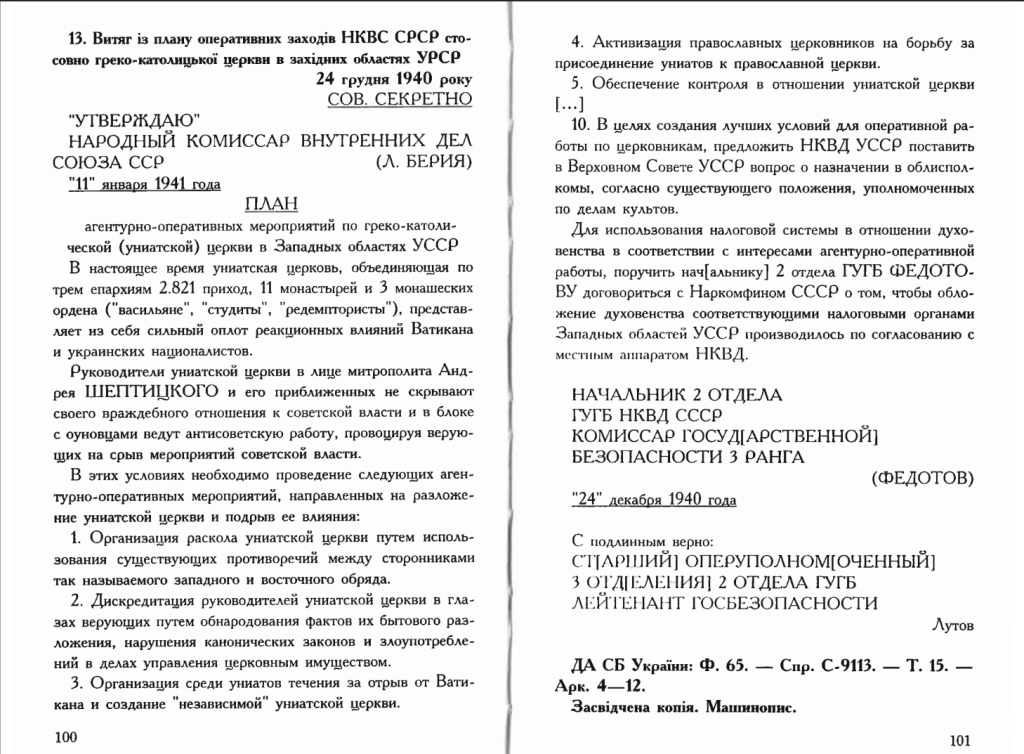
Excerpt from the NKVD’s operational plan regarding the Greek Catholic Church in the western regions of the Ukrainian SSR. December 24, 1940. Photo source: Liquidation of the UGCC (1939-1946). Documents of the Soviet state security agencies. Kyiv, PP Serhiychuk M.I., 2006. Vol. 1. p. 100.
Thus, in the Soviet document on the Ukrainian Greek Catholic Church, one can find the “arguments of the Soviet special services” in which this church is accused of so-called “anti-Soviet activities,” gathering its believers and clergy for anti-Soviet events. As a result, the Soviet authorities banned the activities of the UGCC and attempted to completely eliminate this church by forcibly annexing it to the Russian Orthodox Church in 1946.
Similar practices are being repeated by the Russian authorities, particularly in the occupied city of Melitopol in the Zaporizhzhia region. There are documented cases where collaborators in occupied Melitopol, under the supervision of the Russian authorities, accuse the clergy of the Ukrainian Greek Catholic Church of “anti-Russian activities,” “participation in mass rallies against the Russian authorities,” and “distribution of weapons,” which, of course, are trumped-up charges aimed solely at banning the activities of this church and leaving only the Russian Orthodox Church in these territories.
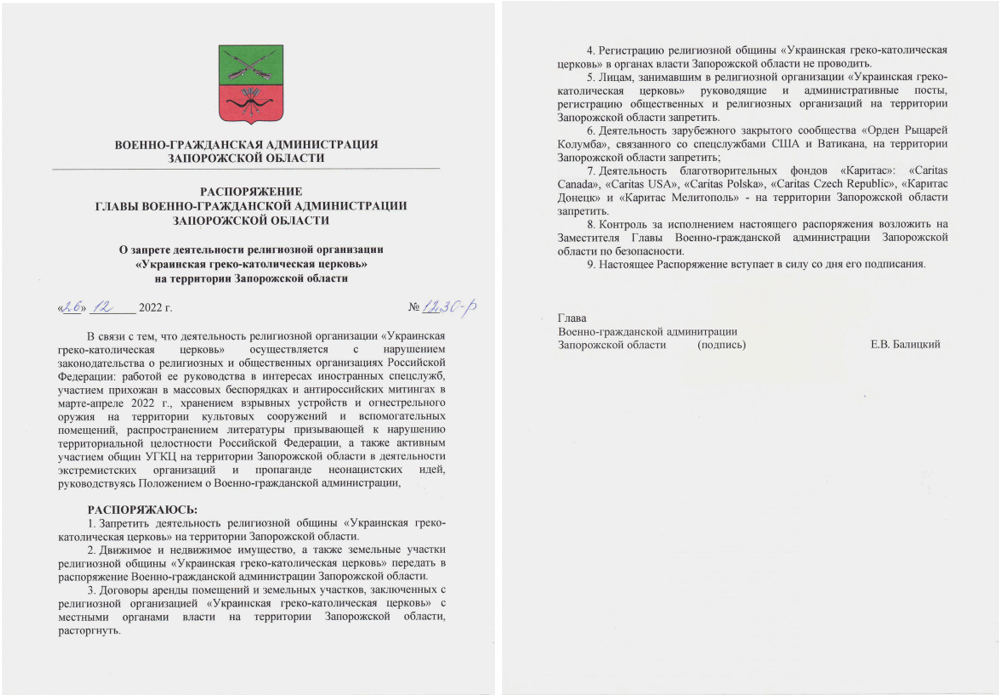
“Order” of the so-called head of the occupation military-civilian administration of the Zaporizhzhia region, collaborator Yevhen Balytskyi, on banning the activities of the Ukrainian Greek Catholic Church in the occupied territory of the Zaporizhzhia region. Photo source: Official website of the Ukrainian Greek Catholic Church.
There are also reports of the deaths and torture of clergy and pastors, for which the Russian occupation authorities in the occupied territories of Ukraine are responsible. Thus, the Commentary of the Ministry of Foreign Affairs of Ukraine on the situation with religious freedom in the temporarily occupied territories of Ukraine dated January 10, 2025, indicates that 67 ministers of various Ukrainian churches and religious organizations were killed by the Russian occupation authorities. According to the Institute for Religious Freedom, 18 of them belonged to the Ukrainian Orthodox Church, 8 to the Orthodox Church of Ukraine, 12 to the Baptists, 8 to the Pentecostals, and 2 to the Adventists.
At the same time, religious buildings are constantly being destroyed. In particular, the team of the project “Religion on Fire” recorded that as of February 2, 2025, at least 643 religious objects had been damaged and destroyed as a result of Russian armed aggression against Ukraine. These include churches, mosques, synagogues, chapels, prayer houses, Kingdom Halls, cemeteries, memorials, and religious educational institutions. These criminal actions once again confirm the deliberate intention to leave only the Russian Orthodox Church in the religious space of the occupied territories.
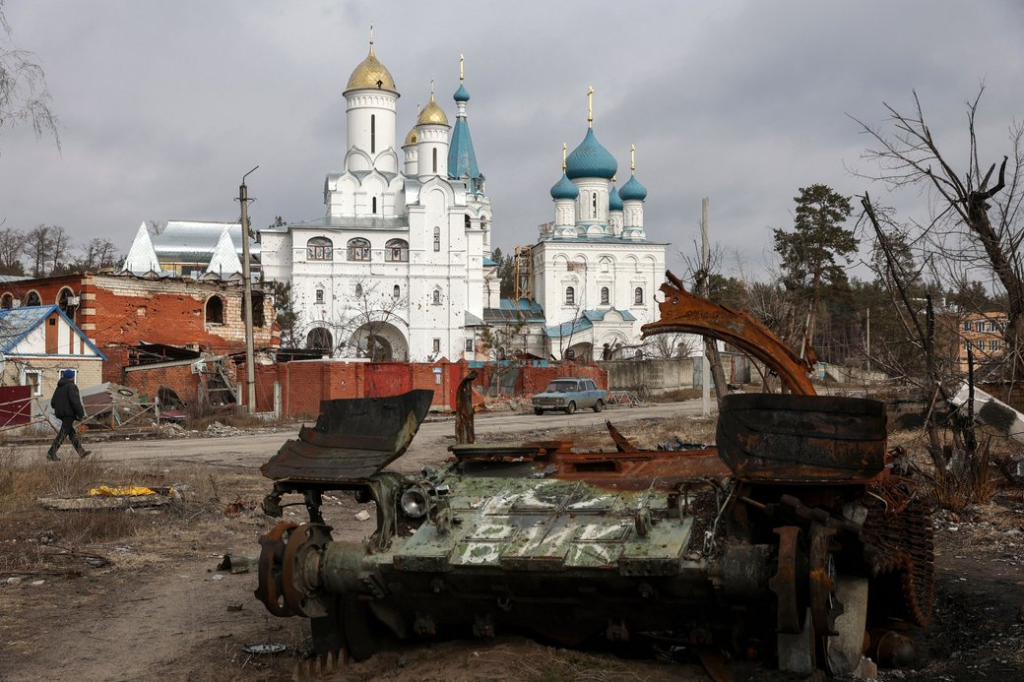
Svyatogorsk Lavra in Donetsk Oblast, March 1, 2023.
ANATOLII STEPANOV/AFP via Getty Images. Photo source: Suspilne.Kultura.
The persecution of Christian communities that wish to conduct independent ministry occurs both at the systemic level and in individual cases. It is worth citing a real-life example of priests and pastors who were in the temporarily occupied territories of Ukraine. For example, there is a known case of the detention of two priests of the Ukrainian Greek Catholic Church, Ivan Levytsky and Bohdan Heleta, in the occupied city of Berdiansk. On November 16, 2022, Father Ivan Levytskyi was detained while praying for peace in the city center, and that same evening, Father Bohdan Heleta was captured near the parish of the Nativity of the Blessed Virgin Mary. Both religious leaders were taken to the Berdiansk detention center, where they were forced to obtain permission from the Russian authorities to conduct religious services. Their detention continued under conditions that remained unknown and dangerous, especially given Father Bohdan’s illness, as he suffers from diabetes and required medical attention.
After his release from captivity and initial rehabilitation, Father Bohdan Geleta gave an interview in which he spoke about his time in captivity: “At first, I was held in cell No. 3. There were 7-8 of us in a cell designed for two people. We slept on the floor because there was no room. It was basically a basement, damp, with water dripping from the walls…” Father Bohdan witnessed horrific things. In particular, he saw a young man in the cell who was beaten with electric shocks and forced to learn the Russian anthem, and told that if he did not learn it, he would be beaten again. This boy stood all night with this piece of paper and studied it, staring at one point. This is a very common sadistic practice and ideological coercion by the Russians, which they apply to civilian detainees and prisoners of war.
At the same time, Father Ivan later suffered physical violence in the Horlivka colony, which twice led to him losing consciousness. These facts testify to the cruel treatment of priests and gross violations of their rights during imprisonment.
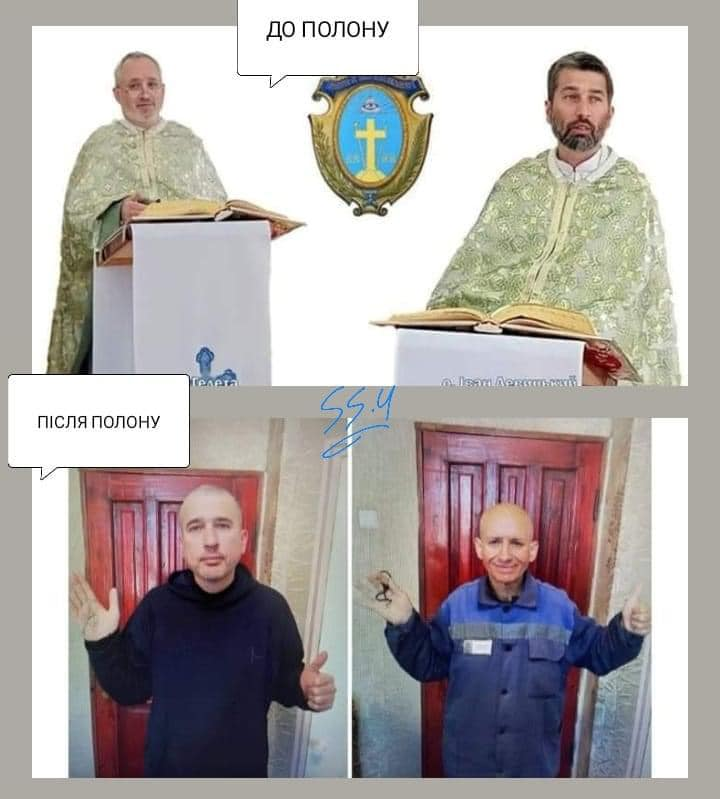
Father Ivan Levytsky and Father Bohdan Geleta
before and after their release from captivity.
Photo source: Facebook page of the Sambir-Drohobych Diocese of the Ukrainian Greek Catholic Church.
All these facts lead to the conclusion that the Russian occupation authorities in the temporarily occupied territories of Ukraine systematically violate the right to freedom of religion by carrying out violent repression against religious communities. This policy includes imposing canonical subordination to the Russian Orthodox Church, persecuting priests and pastors, kidnapping, deporting, and destroying churches and religious buildings that do not belong to the ROC. Particular cruelty is shown towards religious communities that refuse to accept the ideology of the “Russian world,” including the Orthodox Church of Ukraine, the Ukrainian Greek Catholic Church, Protestant communities, and other communities. As a result of these actions, freedom of religion has been effectively eliminated and the religious identity of the Ukrainian people in the occupied territories has been destroyed through the use of violence, intimidation, censorship, and ideological coercion. This behavior by the occupying authorities is a systematic ideological and physical act of destruction of Ukraine’s religious freedom and cultural heritage, which has nothing to do with their official statements about protecting Christianity, but rather serves as an instrument of totalitarian control and pressure on society.
Havrylov Vladyslav,
collaborative fellow with the Collaborative on Global Children’s Issues at Georgetown University, analyst at the Media Initiative for Human Rights.

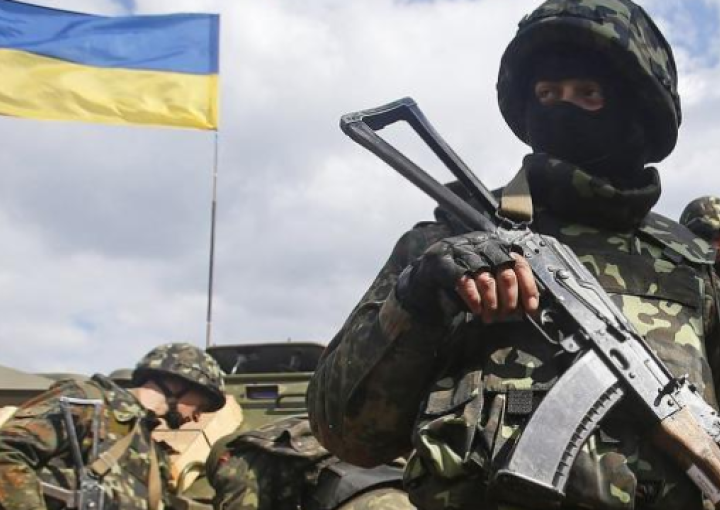 A Ukrainian army of 600,000 men is still the second biggest in Europe
A Ukrainian army of 600,000 men is still the second biggest in Europe 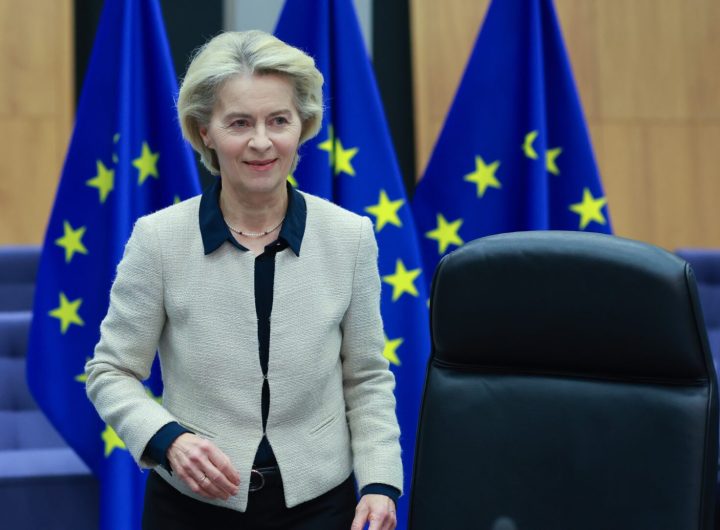 EU lays out bloc’s key elements for a lasting peace in Ukraine
EU lays out bloc’s key elements for a lasting peace in Ukraine 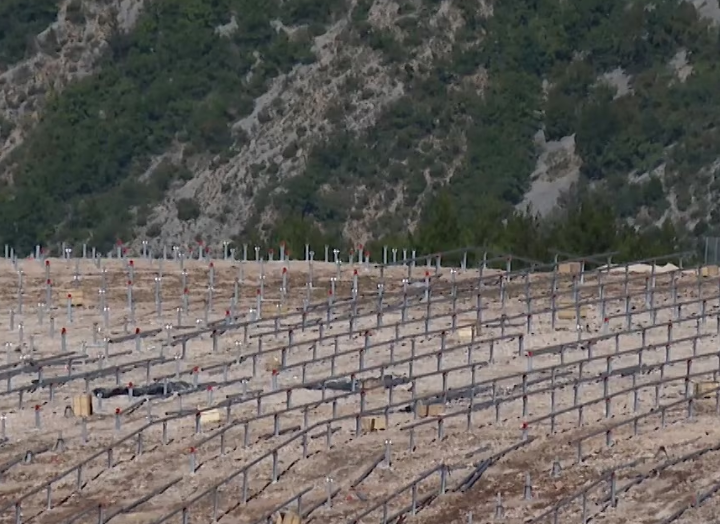 From Mines To Solar Plants, Chinese Projects Face Rare Legal Setbacks In The Balkans
From Mines To Solar Plants, Chinese Projects Face Rare Legal Setbacks In The Balkans 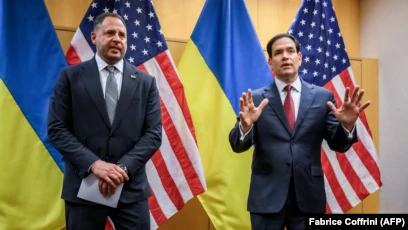 Rubio Praises Geneva Talks With Ukraine, Says Trump ‘Pleased’ With Progress
Rubio Praises Geneva Talks With Ukraine, Says Trump ‘Pleased’ With Progress 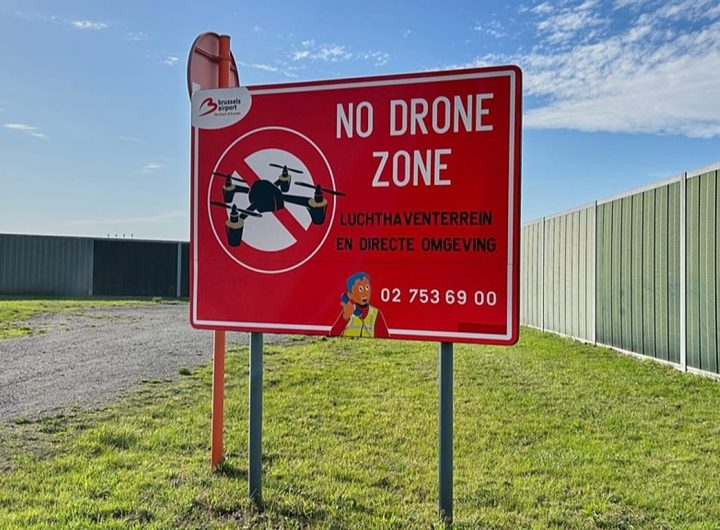 Belgium buys Latvian-made drone interceptors after string of incursions
Belgium buys Latvian-made drone interceptors after string of incursions 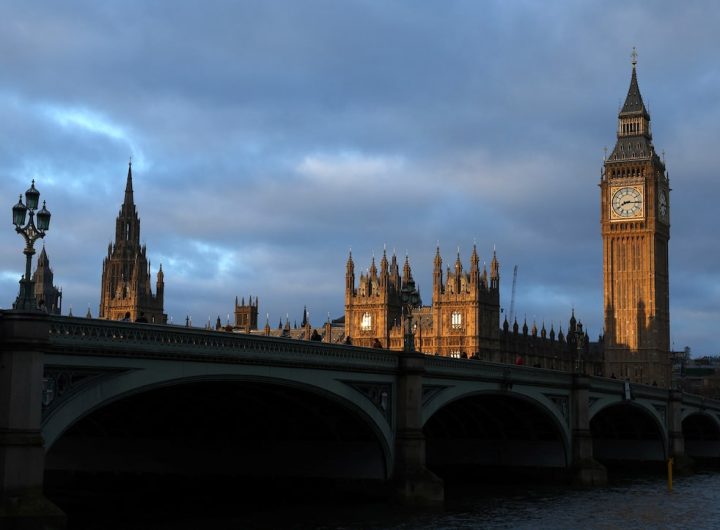 MI5 warns UK lawmakers Chinese spies posing as headhunters
MI5 warns UK lawmakers Chinese spies posing as headhunters